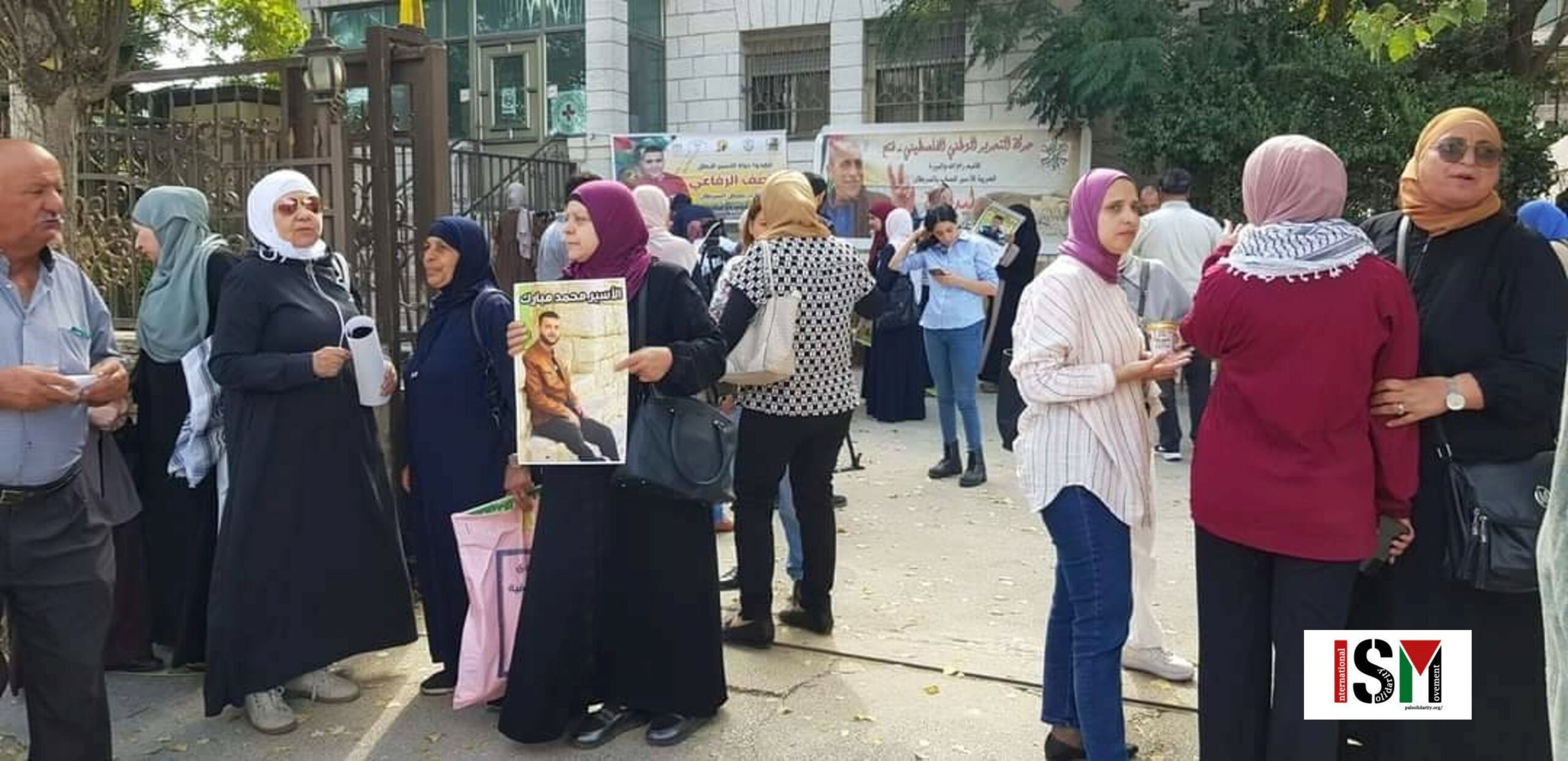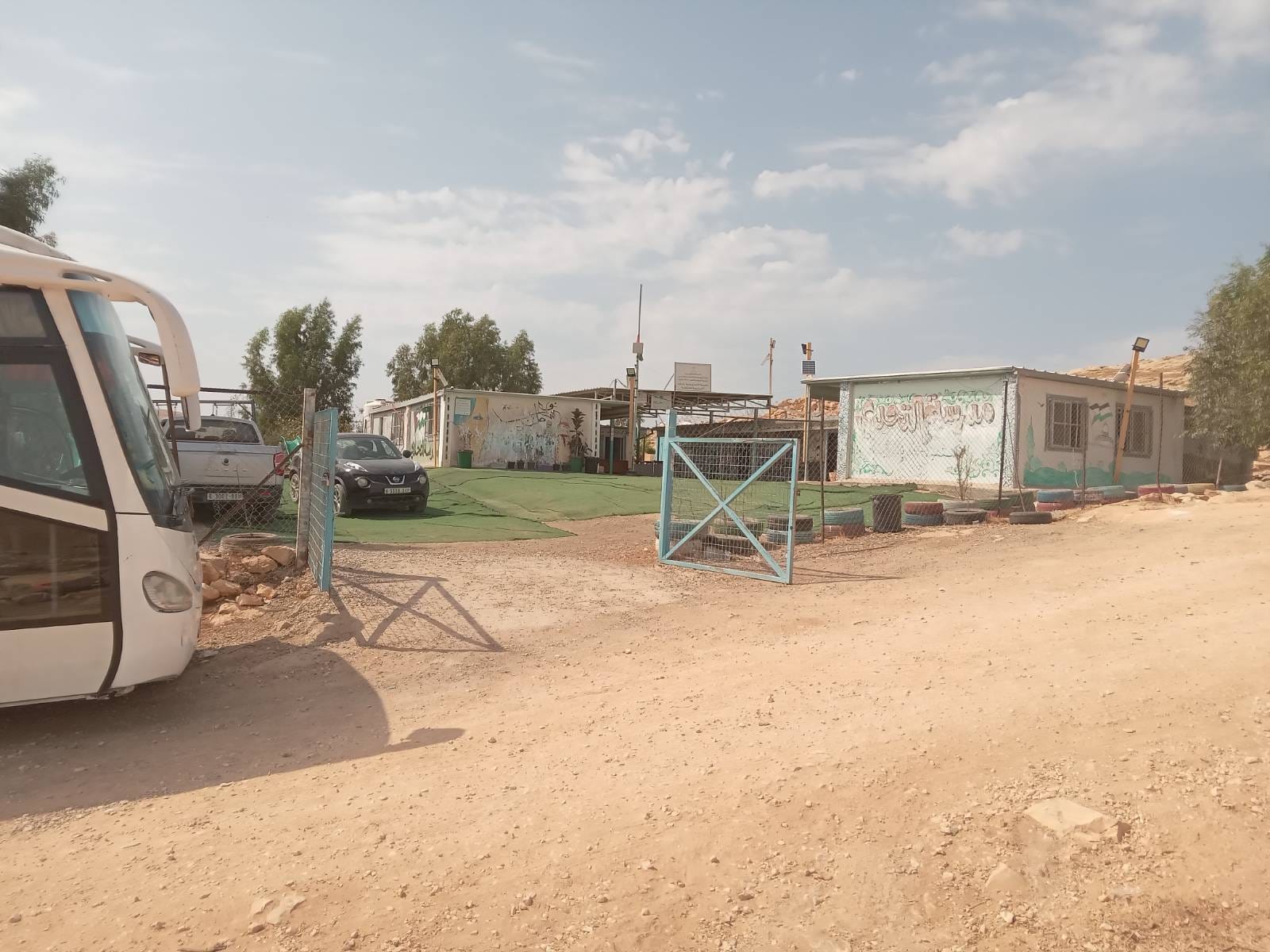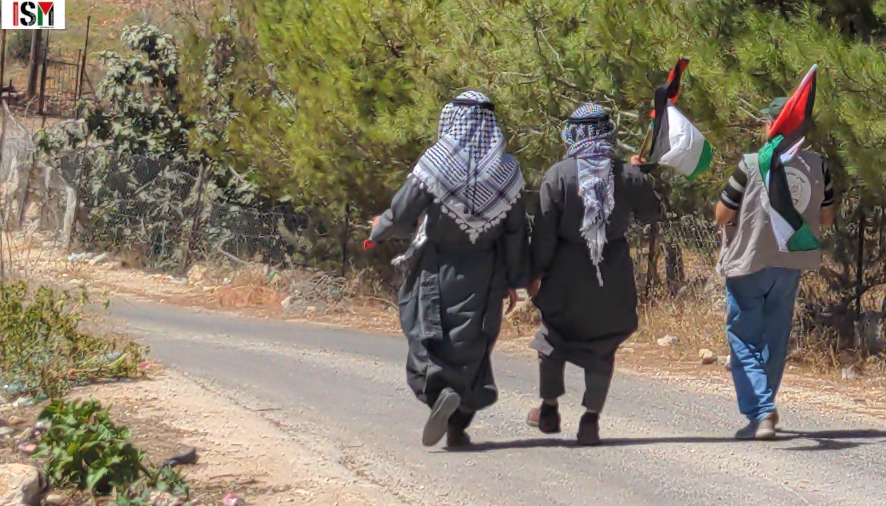Tag: Ramallah
-

Prisoners’ Solidarity Demo
24 October 2023 | International Solidarity Movement | Ramallah The ISM attended the weekly demonstration held in front of the International Red Cross, in Ramallah, to demand the release of prisoners from the Occupation’s jails. When we arrived at the demonstration, a lady called out to me in French – “You’re French? Macron shouldn’t come…
-

Palestinians hospitalised in settler attack near Ramallah
15 October, 2023 | International Solidarity Movement | Wadi Siq Armed settlers attacked Palestinians and international volunteers in the Bedouin village of Wadi Siq, east of Ramallah, on Thursday (October 12) hospitalising two people. Villagers were also beaten after the illegal settlers returned for a second attack later that day, ISMers were told. …
-

Palestinians in Qaryut reassert their right to visit their spring, despite IOF violence
On Friday 15th of September the people of Qaryut – a village between Nablus and Ramallah – held a demonstration reasserting their rights over the village spring. The village is close to the illegal settlements of Eli and Shilo, and every Friday settlers come to wash in the spring. This is a clear act of…
